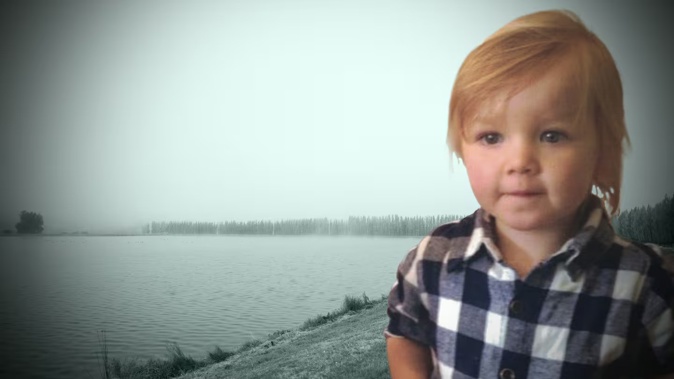
A general pathologist who conducted the autopsy on Lachie Jones says they concluded the boy drowned by excluding other causes of death.
A 15-day inquest into the death of three-year-old Lachie Jones hosted by Coroner Alexander Ho has entered its third and final week.
On the evening of January 29, 2019, Lachie was found face-up in a council oxidation pond near his home.
The pathologist, who has interim name suppression, said they reluctantly agreed to carry out the autopsy as they were usually a specialist task and not something the witness had been routinely undertaking since working in New Zealand.

Lawyer Simon Mount KC at the Invercargill courthouse on Thursday during the coronial inquest into Lachie Jones' death, on January 29, 2019. Photo / Southland Times/Stuff
The witness said they were told the death was not suspicious, that Lachie had wandered away from his home and walked to a pond, but admitted a forensic pathologist should have completed the autopsy.
The witness was also aware of an objection to the autopsy by one of Lachie’s parents, who the inquest earlier heard to be Paul Jones, but was not aware concerns about how his son died had been raised.
The pathologist’s autopsy report was reviewed by Dr Alexander Kolar, an expert forensic pathologist in the United Kingdom, and Dr Martin Sage, a forensic pathologist.
The witness told the inquest they understood the decision to be made for them to conduct the autopsy was made to save Lachie’s mother from the delay of having it performed outside of Southland by a specialist pathologist.
Lachie’s body was received by mortuary technician Bill Little, who took the initial photos of Lachie’s body.
The witness said they decided not to send for X-ray imaging as they had not seen anything that indicated trauma, other than the attempted methods to revive him.
The witness recalled a conversation between themself, Little, and the duty coroner about opening Lachie’s head, but decided against it as they had observed no external trauma and expected this to be likely to upset Lachie’s family.
Both Dr Kolar and Dr Sage were critical of the decision not to examine the head and brain.
The witness concluded that Lachie had drowned by excluding other causes of death, and the fact he was found within a body of water the witness had been assured Lachie had access to.
A toxicology report also came back negative.
Lawyer Simon Mount KC, counsel for Coroner Ho, put it to the witness that in their reports, Dr Kolar and Dr Sage decided it could not be concluded Lachie died from drowning, to which the witness disagreed.
“In my opinion, the cause of death still would be drowning unless someone can find an alternative diagnosis,” the witness said.
Mount put it to the witness that Lachie’s lungs were lighter than typical when it would be expected that a drowning death would cause them to be heavier.

Paul Jones, the father of Lachie Jones, won't give up his search for answers. Image / NZME / George Heard
The witness accepted this, but told the inquest it was possible a “dry drowning” could have occurred which they had witnessed previously in other autopsies.
The inquest heard a dry drowning, when water never reaches the lungs, is thought to occur in less than 10 per cent of cases.
Mount KC put it to the witness that it had been raised throughout the inquest that Lachie’s body had been stored in a freezer prior to being placed in the pond.
The witness told the inquest they were familiar with observing tissue that had been frozen, and did not believe this had happened to Lachie.
“If you freeze tissue and then thaw it, you’re going to have changes.”
He said if the body had been in a freezer for any length of time, they would have “seen it quite easy.”
Ben Tomsett is a Multimedia Journalist for the New Zealand Herald, based in Dunedin.
Take your Radio, Podcasts and Music with you









